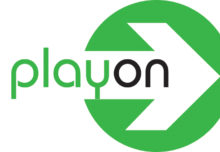Connective Games’ Julia Salagaeva looks at the value of using smaller software providers to bring flexibility to business…
Much has been said recently about the importance of online gaming operators having a flexible platform that can deal with today’s divergent regulatory landscape. The new wave of regulation across the world brings with it a new set of challenges and those operators bogged down in contracts with creaking, hard-coded software have naturally lost ground over the past few years.
Similarly, the huge disruption to the industry of mobile technology has left some less adaptable operators struggling to keep up. Never before has it been so vital to employ a highly-modular, flexible and configurable platform in an industry where technology and regulatory compliance are in such a state of highly complicated flux.
Increasingly, operators are seeing the value in smaller software providers, with flexible open-architecture platforms who are able to react to the market demands more quickly. Many of the bigger software providers are bogged down by numerous contracts and have many different instances of their platform out there. In some cases, operators must wait patiently in line to receive updates to their platforms, with prioritization driven by the importance and size of the client.
That works quite well for the software provider, who gets paid many times over for essentially the same thing, and it’s OK for operators high up in the priority list, but for the small-to-medium operator it’s not good enough anymore.
Smallish is Beautiful
A smaller software with a highly flexible platform, therefore, becomes ideal for the small-to-medium operator. Its “smallness” means that it will be able to concentrate with greater focus on specific regulatory markets, perhaps, meaning that operators engaging in these markets can be fully compliant at the flick of a switch.
But smallness also means no big queues and a more bespoke, client-focused service, with a platform that can be adapted to a client’s needs; “boutique gaming”, if you’ll pardon the phrase. This can be invaluable when it comes to reacting quickly to the demands of the market.
Case Study: Pokerdom
The online poker market, for example, has traditionally been slow to react as new live poker variants are created and become popular. The industry had barely got to grips with the idea of open face Chinese poker – and very few sites offer this extremely popular variant to this day – before Pineapple Open Face Chinese Poker (Pineapple OFC), the newest live poker craze, came along.
However, Russian-facing site Pokerdom, noticing a predilection for the game among live Russian players, was able to ask its software provider, Connective Games, to build Pineapple OFC tables onto its platform. Because the Connective Games platform is built to offer a high level of flexibility, and prides itself on the swift creation and integration of new games, Pokerdom was first into the market with an online Pineapple (OFC) offering.
Finding itself the only place on the internet offering the games, Pokerdom’s traffic increased. “Being first into the market with a new game can be a huge advantage for an operator,” commented representatives of Pokerdom. “The Pineapple (OFC) games received a huge response from customers, completely exceeding our expectations. I don’t think we could have done that if we were just one skin of a much larger poker network.”
Of course, likewise, it’s not necessary to spend multiple millions acquiring the next trendy social gaming start-up, as some companies have done, in order to make the move into social gaming, or to simply add social elements to your existing games. All you need to do is to find the right provider, who is able to customize your platform to your needs swiftly and efficiently; and remember, sometimes, in order to think big, you have to think small first.
Julia Salagaeva
Head of Business Development & Corporate Communications, Connective Games
Julia has considerable sales experience, arranges formal business offers, operates with potential prospects, generates leads for possible sales, and executes follow-up sales activity. She is responsible for marketing direction, information management and customer service.


